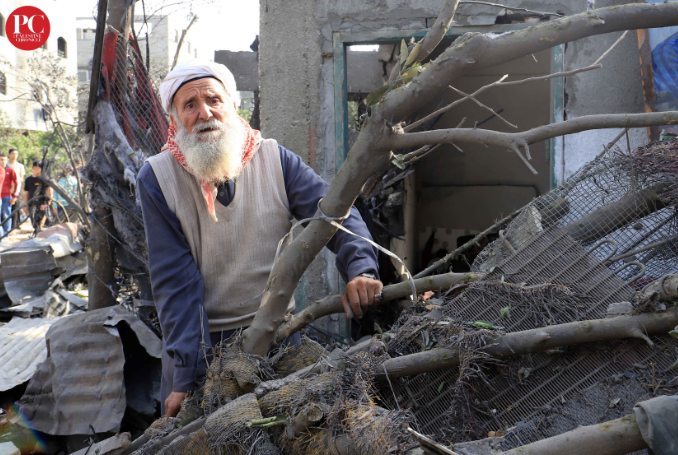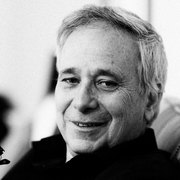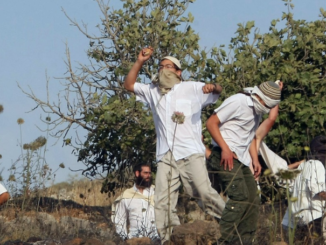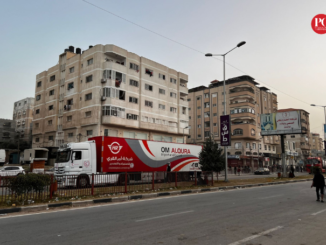
By Ilan Pappe – The Palestine Chronicle 
Once more the Gaza Strip is bombarded from the air, land, and sea, and, once more, Israeli inhumanity and cruelty are met with Western silence. We have written countless times about it. And imagine how many times a generation older than ours cried out against this injustice dating back to the days of the Nakba, if not even before it.
Recent scholarship has shown that since the end of the first world war and up to the Nakba, the various inquiry commissions sent by either the League of Nations or the British government warned their senders that the continued colonization of Palestine would prove to be disastrous to its native people; in the words of the 1930 Shaw inquiry commission, “the Jewish land purchase constitute a present danger to the Arabs’ national survival”.
The British believed that the limitation they posed on the entry of Zionist immigrants into the country and severely restricting the purchase of land by the Zionist institutions would save the Palestinians. However, by the time they began to implement that policy, it was too little too late. More importantly, the British government in Palestine was aware of the intention of the Zionist movement to take as much of Palestine as possible with as few Palestinians in it as possible; and yet provided that movement economic, military, and political power to carry out the dispossession of the Palestinian when the Mandate ended.
During the Nakba, when the Zionist forces began their ethnic cleansing operation in February 1948 with the forceful eviction of three villages around Qaysariya, the British officials and army were still there, bound to protect the lives and property of the Palestinians according to the Mandate charter and the United Nations partition resolution.
But the local British representatives stood by when the ethnic cleansing escalated with the urbicide (the systematic destruction of towns and neighborhoods) that raged in April 1948. In some cases, they even assisted the Zionist forces in implementing the ethnic cleansing. This stage in the dispossession turned more than a quarter of a million Palestinians into refugees which forced a reluctant Arab world to send its troops to save the rest. But it did so only when Britain left Palestine on 15 May 1948. By then, such intervention was useless.
Before and after the end of the Mandate, Western journalists and emissaries of organizations such as the UN and the International Red Cross were present on the ground. American journalists embedded with the Zionist forces reported massacres in al-Lid and other places and yet the war crimes were not condemned; neither did the International Red Cross publicize what it knew was unfolding on the ground. Its internal report shows that it was appalled by the way Israelis treated Palestinians, as young as 14 years old, who were incarcerated in forced labor camps. These reports also registered the intentional poisoning of Acre’s water with typhus. All this information was shelved until historians such as Salman Abu Sitta found them in the archives.
This silence sent an important message to the new state of Israel: crimes such as ethnic cleansing – which were condemned in the very same year by the 1948 famous Declaration of Human Rights – are allowed in the case of the Jewish state. The absence of any Western or UN response continued when Israel erased any trace of Palestinian culture and life in the wake of the cleansing operations, by building Jewish settlements and planting recreational parks on the ruins of Palestinian villages.
The history of Western silence continued into the 1950s – in the face of the killings of Palestinians who tried to retrieve their possessions in the early 1950, the harsh military rule imposed on the Palestinian minority inside Israel, and the massacres of Qibyah and Kafr Qassem.
The fact that after the occupation of the West Bank and the Gaza Strip in 1967, it was much easier to gather information about the Israeli criminal policies – which include a massive ethnic cleansing in the Syrian Golan Heights – did not alter the immoral response of the West. It only accentuated the hypocrisy of the West and the exceptionalism granted to Israel.
Not everyone was silent. The people on the ground representing the Western world did record what they have seen and heard. They represented respectable international organizations and committees of inquiries dispatched by the UN, and were part of diplomatic legations either in Tel Aviv, Jerusalem or Ramallah. They provided detailed weekly, monthly and annual reports – recording accurately the geography of the disaster Israel created in various parts of historical Palestine. They painted a picture that the current president of the European Commission, Ursula von der Leyen, should look at very carefully when she stated that Israel made the desert bloom – in fact, an already blooming Palestine became a desert under Israeli colonialism.
We are all aware that Western governments do not represent large sections of their societies on this question, and we are waiting, and many of us working, to close the gap between the official policies towards Israel, and the public opinion on this issue. In recent years, Israel went to war against these sections in the public opinion, weaponizing antisemitism and lately Holocaust denial in an attempt to silence these people and organizations. To no avail – the solidarity with Palestine is in constant expansion and growth.
But the incremental genocidal policy on the ground makes such a patient wait for the coveted day in which Western governments would see the light, a luxury the Palestinians cannot afford. Whether we like it or not, and many of us do not, our lives in many places on the globe are determined by policymakers – not in every aspect of life, thank God for that. But these policies do considerably impact our fate in matters of life and death – in cases of war and peace, oppression and liberation.
Policymakers are rarely people who are moved by moral considerations, although they never cease talking about them. They only care about elections, visibility, and other matters that can get them elected. This applies to liberal democracies as much as it applies to other forms of government.
The need to exert pressure on governments globally – in the global north and south – cannot be done by one political persuasion, one particular party, or only by secular or religious people.
It is true and there is no denying that the Left, in many parts of the world, has historically led the way for solidarity movement with the Palestinians. But Palestine needs everyone: there are people in liberal and conservative parties who, past and present, were no less pro-Palestinian than anyone else, and a vast majority of people who believe in tradition and religion, regard Palestine in its liberation as a sacred goal.
In more than one way, the Boycott, Divestment and Sanctions Movement (BDS) enabled such wide participation focusing on Palestinian rights and providing a wider basis for inclusive acts of solidarity. It is directed towards many and crucial sections of civil society. A new initiative, dovetailing the BDS and in collaboration with it, asked parliaments to take the lead in creating anti-Israeli apartheid committees, and to be part of an international network of such committees around the world.
Hopefully, in places where parliamentarians and government officials would hesitate to openly back BDS – which they probably would support in principle – they cannot shun taking part in conforming to an apartheid state as clearly stated by Amnesty International and other human rights organizations.
There are already signs of positive responses to this initiative among members of parliaments. It is one example of how wide, intersectional, and multifaceted the solidarity movement is and can be. Great work has been done horizontally, namely widening the groups with which the Palestinian solidarity is working with worldwide. But more vertical and in-depth work must also be carried out, not giving up on parliaments, civil servants, etc. It is time to enter the comfort zone of the Zionist lobby where they believe they are uncontested or dominant.
As always, there is urgency, as we are always dealing with existential danger for the Palestinians.
Israeli Jews, including those of the left, spent much of the last week watching, while eating their dinners, repeated clips on their TV screen of their air force blowing to pieces homes in the Gaza Strip. Some of the pilots who participated in this grotesque violence are the same who proudly noted that they are part of the protest movement against the legal reform proposed by rightwing Israeli Prime Minister Benjamin Netanyahu. A “democratic movement”, indeed.
When you combine this with the commentary heard on Israeli media you can only reach the conclusion that Israel has become a sick nation, and a dangerous one. This message needs to be clearly disseminated to the top of the political systems around the world, in fact to every society, everywhere.

– Ilan Pappé is a professor at the University of Exeter. He was formerly a senior lecturer in political science at the University of Haifa. He is the author of The Ethnic Cleansing of Palestine, The Modern Middle East, A History of Modern Palestine: One Land, Two Peoples, and Ten Myths about Israel. He is the co-editor, with Ramzy Baroud of ‘Our Vision for Liberation.’ Pappé is described as one of Israel’s ‘New Historians’ who, since the release of pertinent British and Israeli government documents in the early 1980s, have been rewriting the history of Israel’s creation in 1948. He contributed this article to The Palestine Chronicle.








